A League of Their Own’s Lea Robinson explains why show ‘hit them in the heart’ and teases season 2
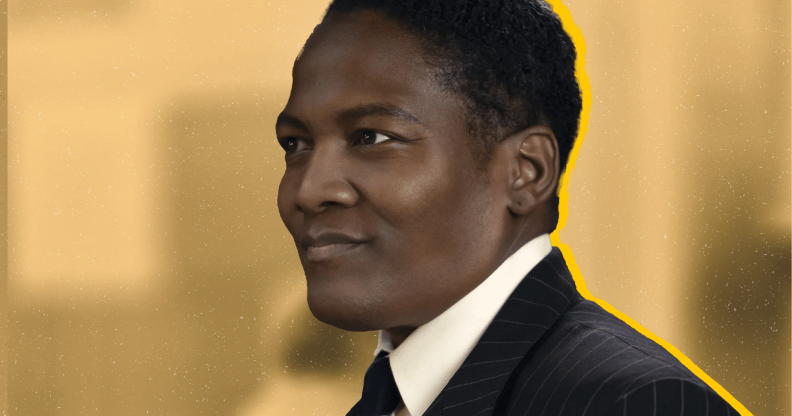
Lea Robinson plays tarns character Uncle Bernie in the new Amazon Prime series A League of their Own. (Prime Video/Amazon Studios)
When Lea Robinson first heard about the character of Bertie in the new Amazon Prime series A League of Their Own, everything clicked into place.
The series, created by Abbi Jacobson and Will Graham, is a remake of the 1992 film which follows an All-American women’s baseball league in the 1940s.
Jacobson’s vision for the series saw Black and queer characters brought to the forefront of the story like never before, and breathed life into new characters like the beloved Uncle Bertie.
In the show, Bertie is a transgender man who re-enters the life of his estranged family through his niece, Max Chapman (Chanté Adams).
We soon discover Bertie was shunned by his sister Toni (Saidah Arrika Ekulona) after transitioning, but when Max, who is herself a lesbian, decides to seek him out, what unfolds on screen is a tender and heartfelt depiction of chosen family, love and acceptance.
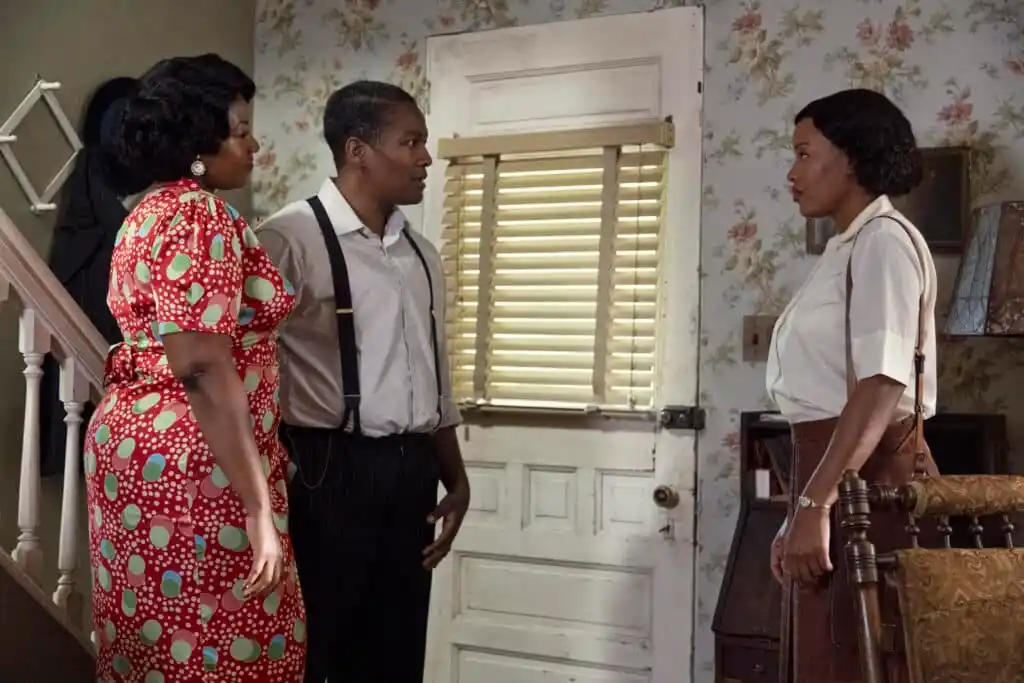
Gracie and Bertie (L) meet Max (R). (Prime Video/Amazon Studios)
Robinson, a Black trans non-binary actor, was already changing the game in their role as a non-binary Reverend in Lena Waithe’s show Twenties, when they decided to try out for Bertie.
“I wondered, ‘where do I fit in’ because I’ve seen the original,” they told PinkNews about the first time they saw the role, “so I was really curious and interested in the project”.
After reading the character breakdown they admit they “fell in love immediately”, adding: “I knew that I needed to play this role. Bertie became a huge part of me as soon as I read his name and description.”
Robinson remembers seeing the original A League of Their Own for the first time.
“[In the film] everyone talks about this Black woman picking that ball up and throwing it, and I remember wanting to know more about her,” they recalled.
A former student athlete, they added: “I know what it takes to have a talent and to push yourselves especially when things aren’t equitable in athletics. Particularly this idea of having a chosen family and the value of a team.”
“Growing up as a little queer trans Black kid in Kentucky,” Robinson didn’t get much by way of representation growing up.
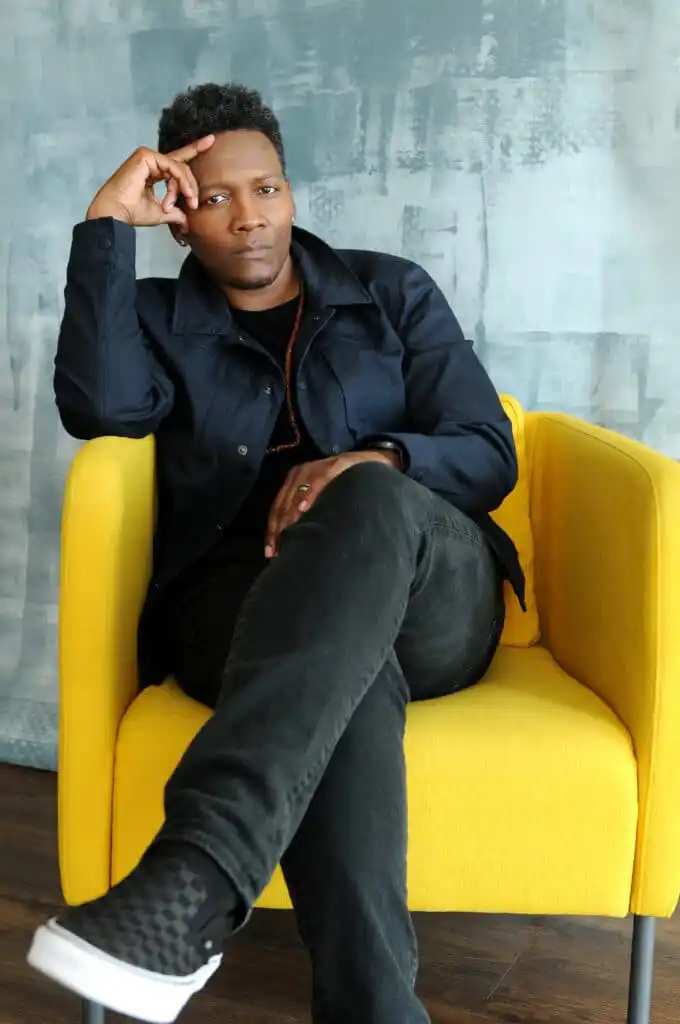
Lea Robinson. (Lisa Keating Photography)
“TV became this escape for me,” they explained, “to fantasise about it and put myself in the shoes of the main male character.”
“I didn’t have a lot of role models on television and that was one of the main reasons why I started acting. I want to be that for someone else, I want folks to see me and be like, ‘Oh, there’s someone that looks like me and I belong in this world.”
Unfortunately, being a Black trans non-binary person trying to break into a notoriously cis, straight and white industry has never been easy.
“Some folks don’t know what to submit me for so it’s been challenging trying to fit in. It’s only recently that roles have become available for people like me.
“I’ve auditioned for male roles, gender blind casting and just tried to navigate those spaces. Only now have we started seeing more language like ‘non-binary’ and ‘trans-identified’ within actual casting calls. It’s a big change and things are getting better but we still have a lot of work to do.”
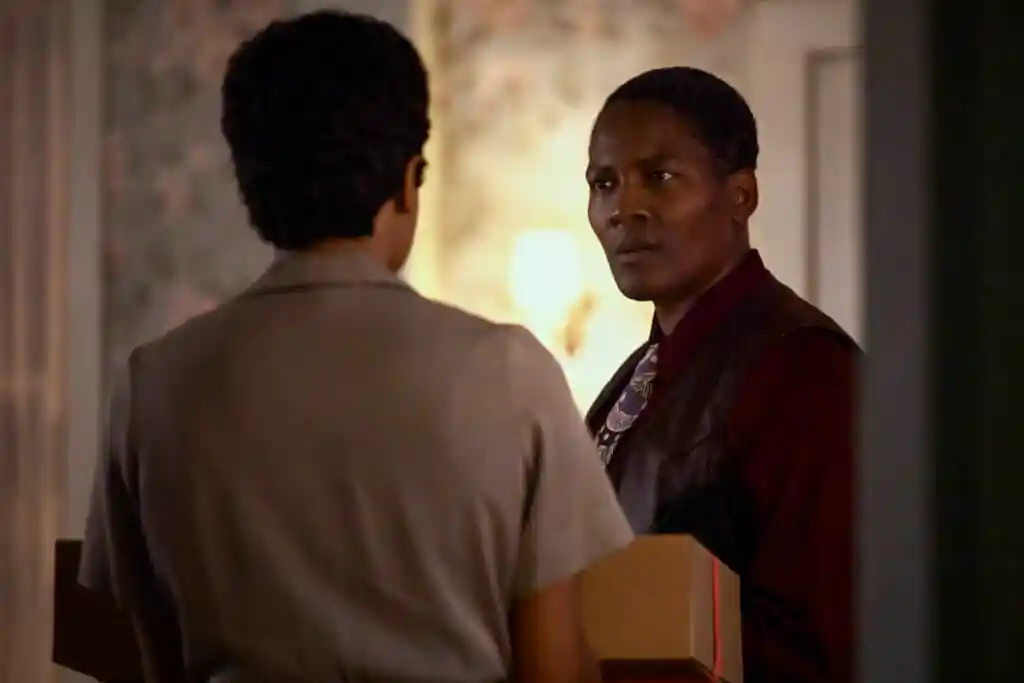
Bertie. (Amazon Studio/Prime Video)
In the show, there are several impactful scenes between Bertie and Max as he helps her grow to accept herself and her true identity as a lesbian baseball player.
Robinson saw their own life in many of the scenes they filmed. One scene that stood out was when Bertie cuts Max’s hair, symbolically helping her reflect her true self.
They explain: “I could relate to getting my own first haircut and what it meant to me.
“The person who was cutting my hair was someone who I trusted so for Max to be able to have that scene with Bertie with that trust, that commitment, that sharing of experiences, it meant so much.”
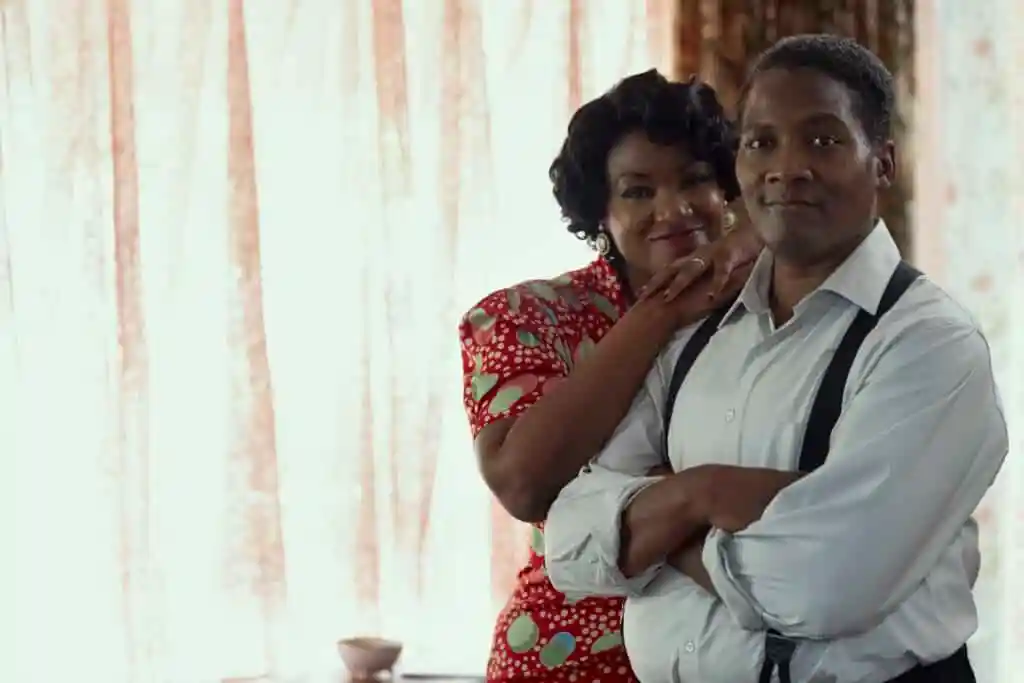
Gracie and Bertie. (Amazon Studio/Prime Video)
Another stand-out scene is when Max joins Bertie, and his wife Gracie, for a party at a bowling alley surrounded by the rest of the local Black community.
Robinson remembers the pool days they and their community had when they were younger and its similarities to the scene.
“At one point, when we were shooting in between takes, I looked around at all these beautiful Black and brown people who were in incredible wardrobes and thought ‘Wow, this is something that’s happening’.”
But for many fans, the standout scene of the season is the party at Bertie’s house filled with queer folk.
“That party scene was unbelievable,” Robinson agreed, “with all the beautiful people in the space who showed the different ways of dressing and gender identity and expression
“I remember the first party that I went to as a queer person, all the excitement and fear of going and someone seeing me, but then walking in and thinking ‘Oh, my goodness, here are my people’.
“The freedom that came with being in that space. The freedom to dance, to look at someone and be looked at and appreciate and be appreciated. Everything about that scene just hit me right in the heart.”
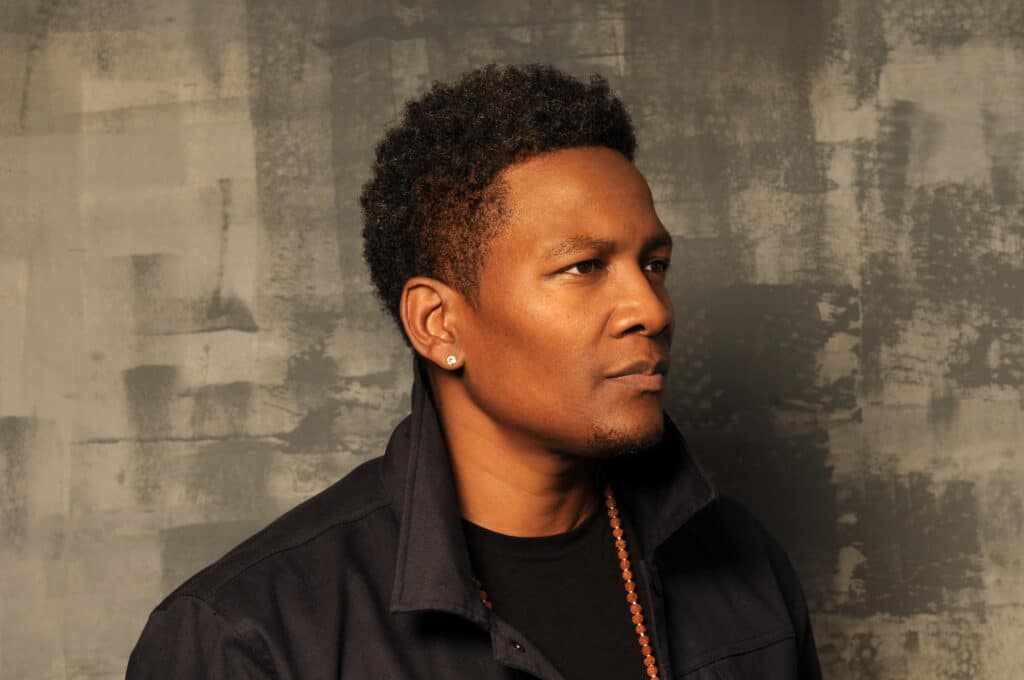
Lea Robinson. (Lisa Keating Photography)
Lea Robinson believes A League of Their Own bucks the common trope of only exploring queer trauma, especially for Black people, and spotlights unadulterated queer Black joy.
Although there is no news yet on whether the show will be renewed, despite its popularity, Robinson has so much more they want to explore with their character in season two.
“I want to see Bertie and Toni’s childhood together,” they begin, “I also want to explore Bertie and Gracie’s love more. I think they are a powerful role model type of couple, and I want to see more joy with them.
“And then obviously Max. I want to see where this relationship goes. How does Bertie continue to support Max? How does Max continue to inspire Bertie?
“And just what makes Bertie happy? So yeah, all the fingers are crossed that it is renewed.”
Since the show first aired a few weeks ago there has been some predictable backlash over its inclusive narratives, but Robinson has been so grateful for the overwhelming support Uncle Bertie has received.
For Lea Robinson, it was simple: “Bertie? Bertie means everything.”

